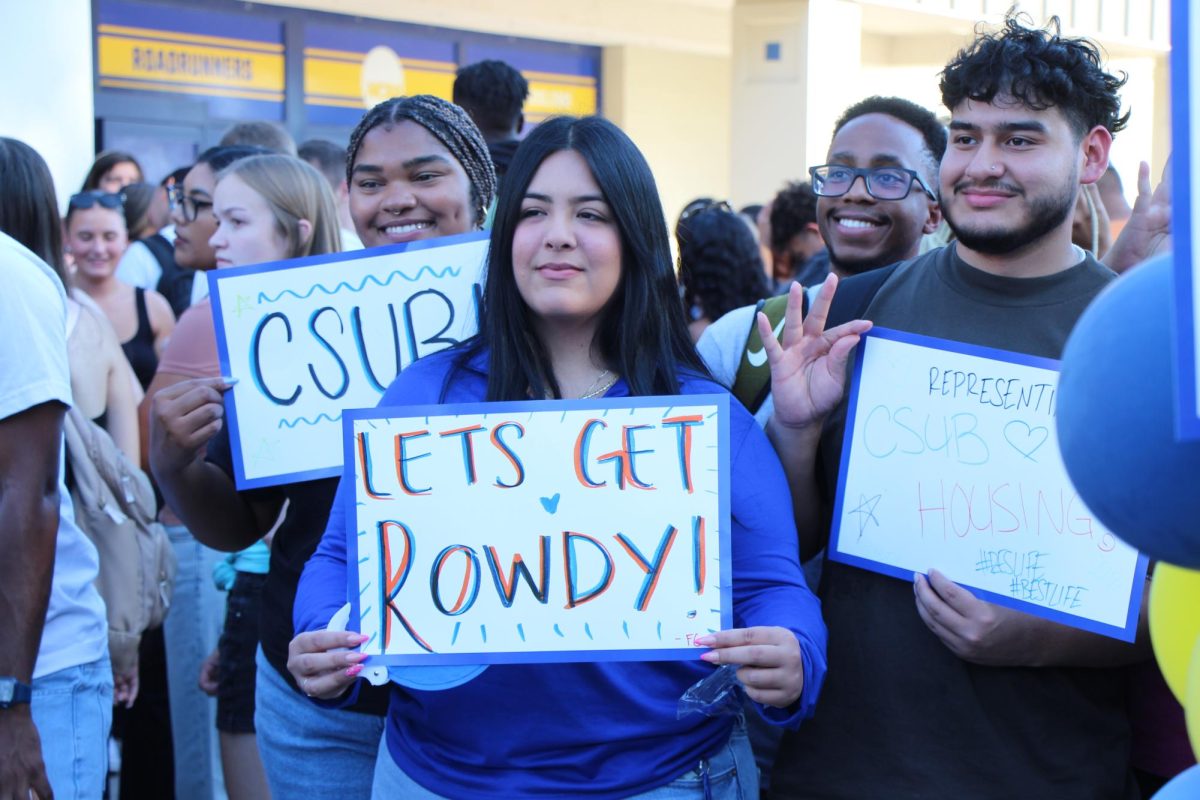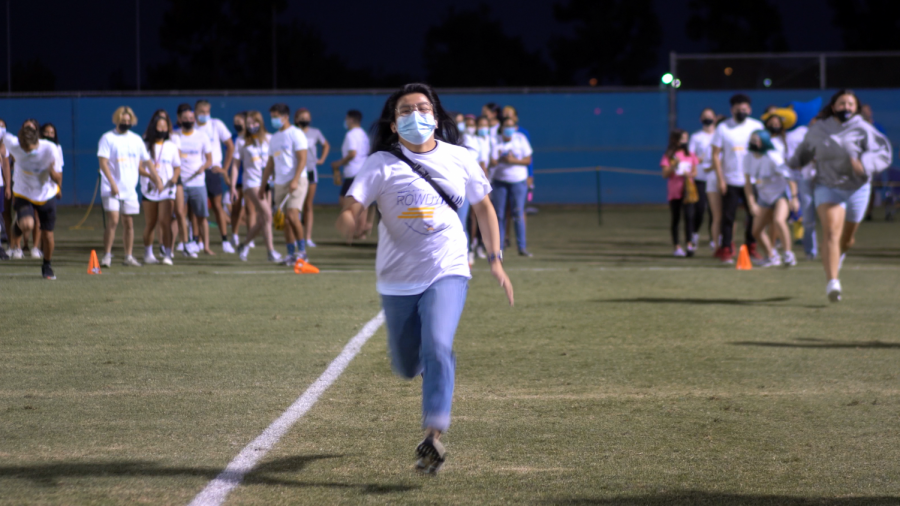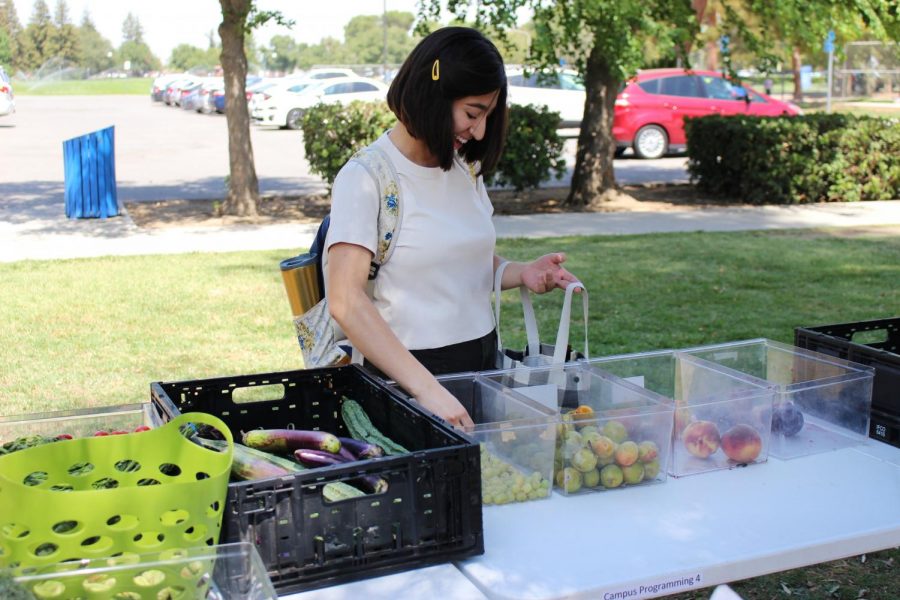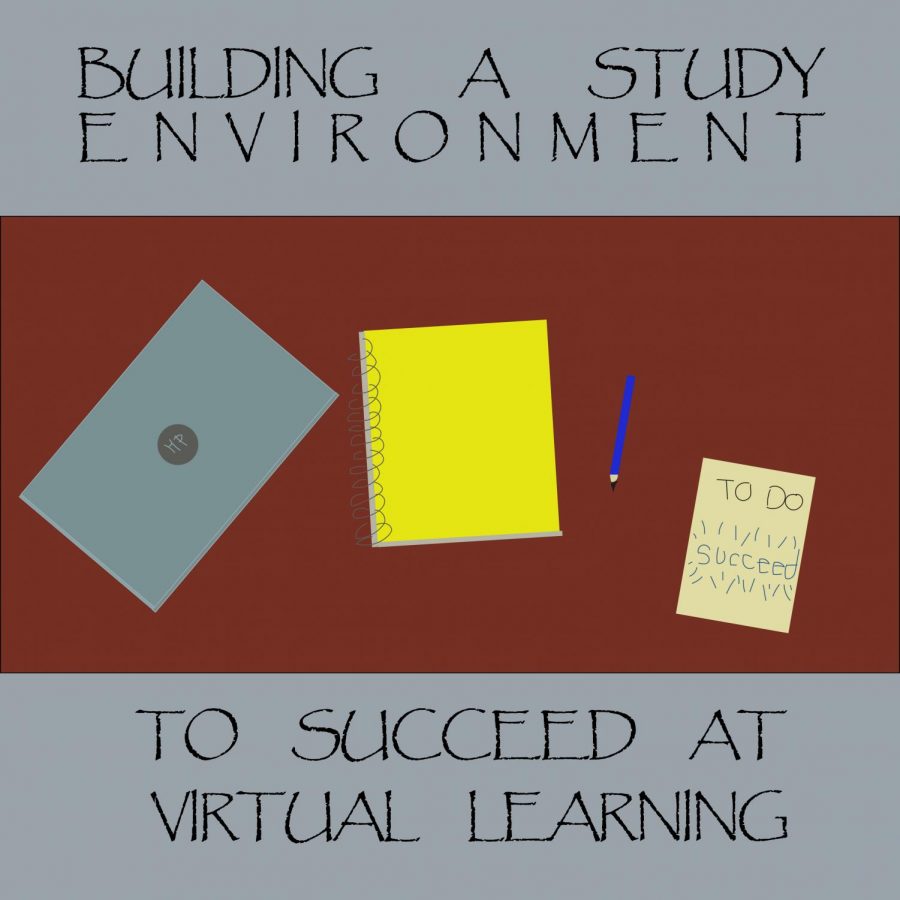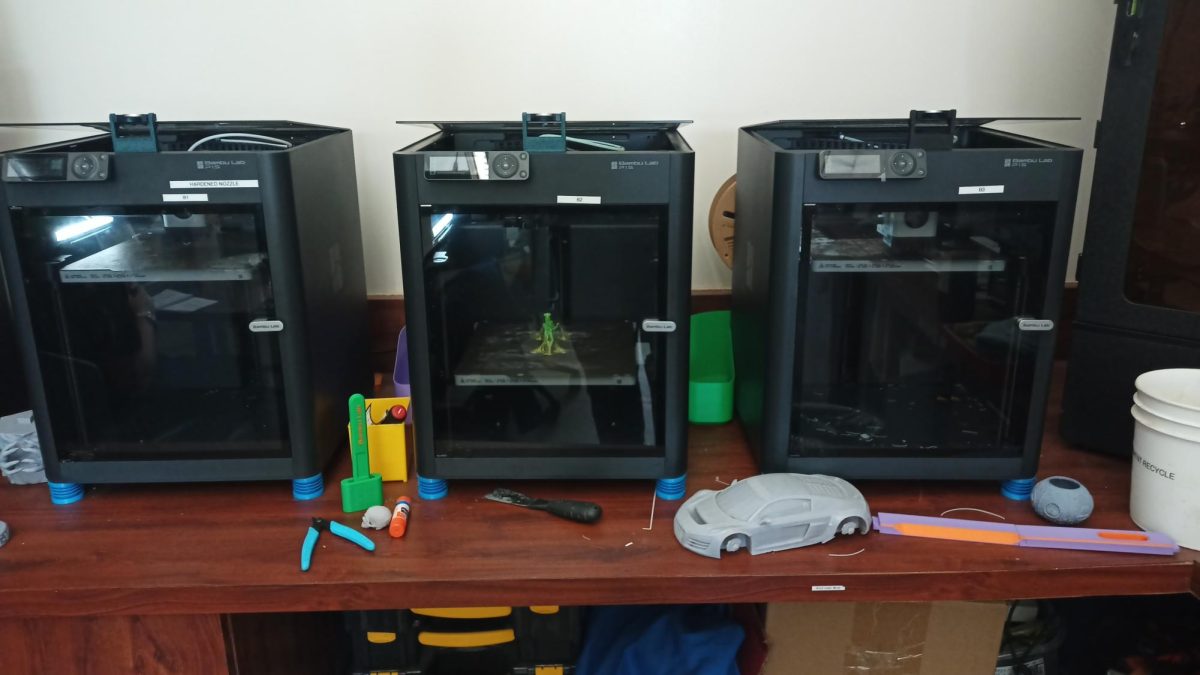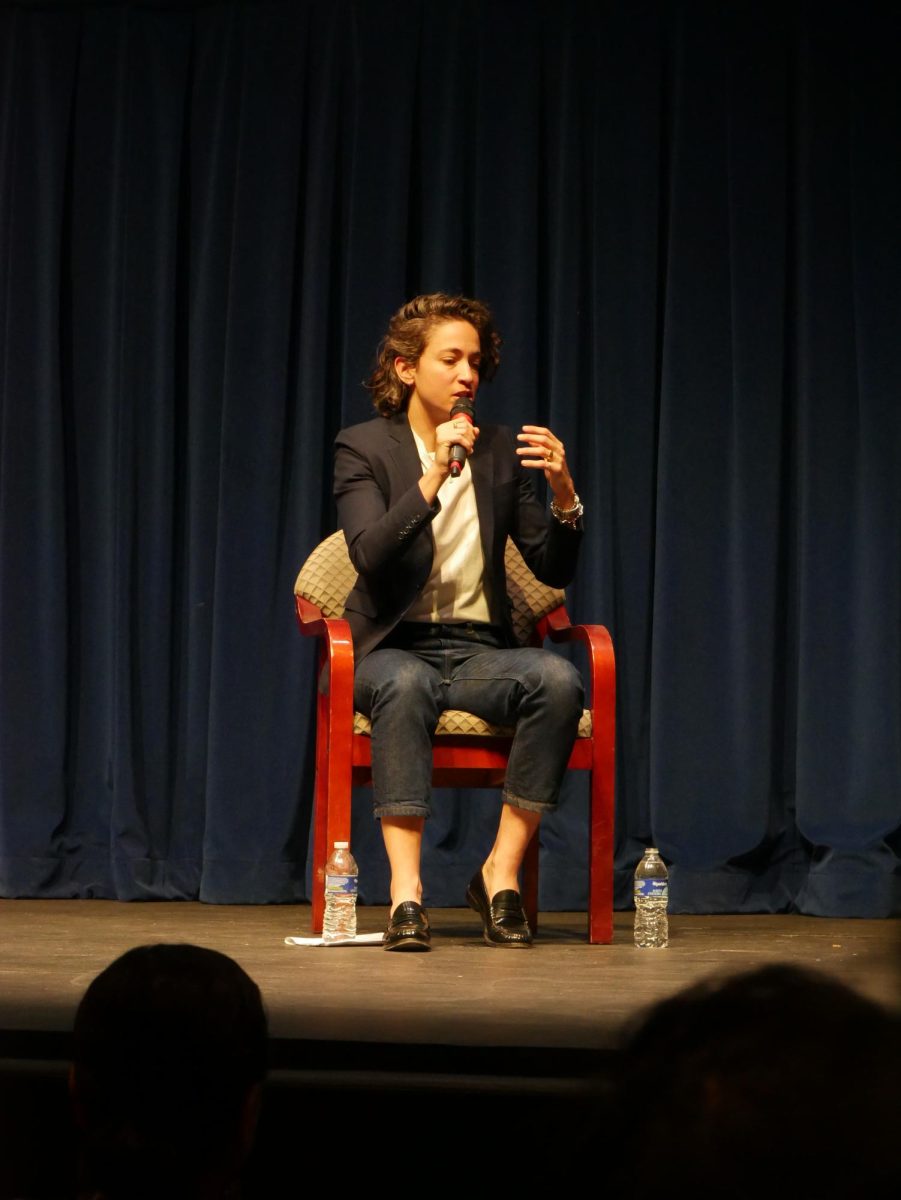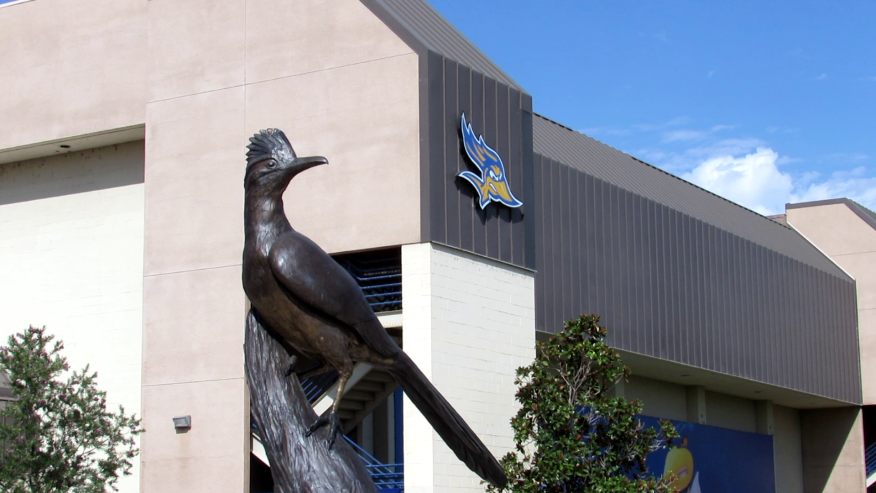News Editor
Life as a college student can sometimes be tricky, but at CSU Bakersfield, there are plenty of resources to take advantage of for a well-rounded successful education.
Faculty and Administration
There are no better people to assist in your education than those you’re actually learning from. Most faculty have on-campus office hours and are eager to assist students in their chosen field. Administrative Support Coordinator Diana Torres highly recommends students actively participate in their educational experience by reviewing their catalog, being aware of class requirements, and seeking out administrative help no matter what the issue.
“If they have questions I’m always available and if I don’t know the question’s answer, then I’ll direct them to another faculty member here because our faculty is very helpful,” said Torres.
Torres also encourages students to pay attention to their syllabus and keep track of drop dates before it’s too late.
“Faculty will maybe take roll the first day and then go on with their classes and if they don’t show up, they automatically get an F…so they need to be aware that if they don’t want to take that class be sure to drop it.”
Advisors
Advisors such as Arts and Humanities Academic Advisor Christina Chavez are on campus to provide students with the information they need to plan classes, pick courses, and stay on track through to graduation. Though the fall advising period is their busiest time, most advisors hope that students will check in with them at more than just required meetings.
“I always tell students to check in with me periodically through the quarter that they’re here, not just for the week of advising,” said Chavez. “By checking in with me after midterms, letting me know how finals went, things like that, we can have that first name basis, and if I know if they need help on something I can get them the resources they need.”
Her colleague Academic Advisor Adriana Sixtos agrees, believing that students should be getting their advising from people who are familiar with their program’s specific needs.
“A lot of them go to their classmates, when they themselves might not know,” said Sixtos.
An additional bonus to advising is being introduced to other valuable major-specific programs available.
“Sometimes their major has a student club and they should really look into that because that could help open up doors for jobs or internships,” said Sixtos. “They start networking early on so I think it’s helpful for those types of connections.”
Tutoring Centers
One of the main programs Chavez recommends to students that sometimes get underutilized is the Tutoring Center available to each school.
“There is a stigma behind tutoring that if you go to tutoring you’re flunking or maybe not the smartest person on campus, but it’s for students geared to keeping that A, managing that A, being the honor student that goes above and beyond to utilize all resources possible,” said Chavez.
Advising Center Coordinator for the school of Arts and Humanities Anna Laven agrees, believes tutoring and peer review is a great way to master the content of a class. Formerly only one-on-one, the center has expanded to facilitated study groups.
“I think we have a misperception that learning happens in a vacuum and it happens individually, when often times there’s a reason why there’s a focus on more and more group work because [students] usually do better, go farther as a team….I think studying in groups is a little more comfortable and less intimidating than the one-on-one.”
Laven hopes students will use the service actively, not as just a last-minute tool for the procrastination type.
“They end up coming the day before their final exam, and that makes it very difficult for the tutor to be as helpful as the tutor could be, because it’s a last minute rush kind of thing and there are other strategies they could have implemented much earlier.”
Career Center
Other services echo the “early and often” mantra for a successful college experience, including the Center for Career Education & Community Engagement. Known as the CECE for short, it provides students with advice on resume building, interview skills, and information on jobs available on campus as well as graduate schools and job possibilities for each major.
“A lot of times students will wait until they’re a junior or senior before they start coming to our office and we really want them to come from freshman year on, because there are things they can do, even as a freshman or sophomore, to be more career prepared by the time they’re ready to start looking for those after-graduation jobs,” said career counselor Diane Allford.
With a wall of on-campus job postings right in their office and online platform RunnerLink, the CECE is the place to go for students who want to earn one of the 170 student assistant positions at Cal State. Allford feels the convenience of these on-campus jobs is what makes these positions popular with students.
“You don’t have to drive to another position, you’re already on campus, and already have the parking permit,” she said. “A lot of the staff understand the demands of being a student and trying to work at the same time so there’s maybe a little bit more flexibility than if you were working somewhere else.”
Former student assistant herself, CECE Assistant Director Katrina Gilmore believes these jobs are a great bridge into working on campus in the future, but students should self-access before they decide to take on a job as a student.
“We have a lot of students who overload to try to get finished, but they also have financial needs so you have to balance what your immediate goals are. It’d be good to get out of college a little bit sooner but if you need the employment piece to that, [a student] may not want to take very difficult or challenging classes all at the same time.”
Though she admits it’s easier said than done, Allford agrees that self-care is important.
“It’s definitely a balance in time management issue…making sure to leave time for yourself too. If you completely burn out, it doesn’t do you any good either,” she said.
Health and Counseling Centers
Here to aid in that student care are both the on-campus health center and counseling center. The Counseling Center provides students with individual counseling to explore a variety of concerns, including academic progress, abuse, anxiety, sexual identity, depression, anger and addiction. According to the Counseling Center website, they also offer crisis intervention and general studies courses in “areas such as stress management, anger management, personal relationships, assertiveness, test and math anxiety, parenting, managing psychological disabilities and adult children from dysfunctional families.”
On the physical side, the Health Center provides students with access to two medical physicians, pharmacy, X-Ray, clinical lab and an array of helpful staff to assist with setting up appointments and applying for programs such as Family PACT, a state-funded program assisting in family planning and reproductive health fees.
Health Education Assistant Lauren Ash-Anderson said she likes working in the Health Center because of the pleasant and confidential environment it provides to students.
“We have a wide variety [of services] so we really just want them to be aware of everything,” she said. “We keep our fees very competitive and low so they’ll always know upfront if there’s a fee.”
She also encouraged students to be aware of a program returning this quarter.
“We are also offering the nutrition counseling again, so students can come in for one-on-one counseling as far as nutrition.”
Library staff
Far more than just a building full of books, Walter W. Stiern Library offers students access to iPads, journals, special presentations and events, scholarly articles and databases, and research and citation help.
Circulation and Billing Supervisor Javier Llamas felt it was important for students to explore the lesser-known resources at the library, including DVDs and course reserve books that teachers have put on hold for students who may not be able to afford a copy of their own.
“We have a nursing book that usually costs like $300 here,” Llamas said as an example.
He was also excited to note extended library hours: Sunday through Thursday, the Library closes at 1 a.m. for those who prefer to study into the wee hours.
“We’re really pushing the 1 a.m. thing,” he said, adding that if students utilize the later hours, it opens up possibilities for even later ones in the future.
University Police Department
Students should feel comfortable using those later hours as another important group works them as well: the University Police Department.
“We’re here 24/7, the only ones here all the time,” said Chief of Police Marty Williamson.
With a less than two-minute response time, the department is trained to handle any situation that may arise on campus, and Williams encourages students to be aware of any instance that may warrant their attention.
“I’d rather have our officers roll on hundreds of dry runs than someone feel inconvenienced. If it turns out to be nothing, so be it,” said Williamson. “Be the eyes and ears for us law enforcement.”
The most common of these instances are crimes of opportunity, where a student may leave valuables unattended even for the shortest of times.
“You can’t be overwhelmingly trusting. Should you have to be? Absolutely not. But it is the biggest preventable crime.”
Williamson hopes that students take their safety seriously by both being aware of their surroundings and utilizing the services the department provides.
“If you ever feel uncomfortable, just call and ask for an escort.”
The police department can be reached directly by phone at 661-654-2677, through their Facebook page and automated message anonymous tip line at 661-654-4636.



